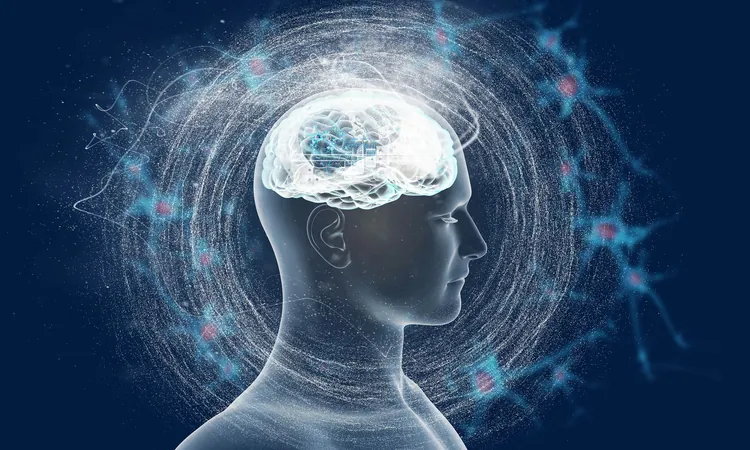
Unraveling the Mysteries of Memory: How Our Brains Build and Retrieve Experiences
2025-04-06
Author: Chun
Have you ever wondered how our brains manage to store and retrieve all the memories that define us? Neuroscientists are making exciting progress in understanding the intricacies of memory formation, revealing groundbreaking insights that could revolutionize our comprehension of the mind.
Memory Links: The Brain’s Intricate Web
Imagine a web of interconnected neurons; each time we experience something new, certain patterns emerge within this web. Recent experiments have shown that when one group of engram cells is activated, it can inadvertently trigger the reactivation of related memories stored in different groups of neurons. This suggests that memories are not isolated in individual neurons but rather exist in the relationships forged between them over time.
Dr. Clara Ortega-de San Luis, a key researcher in this field, emphasizes that memory engram cells adapt to hold information through specific experiences. This adaptation occurs as neurons form new connections with one another. These links are crucial; previous studies merely traced the steps of memory encoding, storage, and retrieval. Now, researchers demonstrate how fresh information can be integrated into existing memory networks, preventing the overwriting of old memories.
The Role of Proteins in Memory Formation
A critical player in this memory formation process is the protein PSD-95, which acts as a gatekeeper at the synapses—the junctions between nerve cells. It anchors receptor molecules that play a vital role in memory storage. When researchers reduced PSD-95 levels, the connections between engram cells changed, suggesting that the persistence of memories might be linked to this protein's presence. Disruptions in PSD-95 could explain difficulties in learning and memory retention.
Memory vs. Experience: What this Means for Our Daily Lives
Our daily experiences require constant memory updates—whether it's recalling a person's name, navigating busy cities, or learning new skills. Understanding how our brain adapts to retain information without losing critical past experiences carries significant implications, especially concerning age-related memory decline and learning disorders.
Neuroscientific work continues to reveal that certain neurons can adapt their roles based on context, and these functional shifts help maintain a balance between new knowledge acquisition and retaining established skills.
Future Implications of This Research
The implications of these findings extend far beyond academic interest. If we can better understand how engram cells function and form networks, it may lead to innovative therapies for memory-related disorders such as PTSD or depression. By targeting the molecular structures enabling these neural connections, there's potential for reframing harmful memories and enhancing overall mental health.
Recent breakthroughs provide a fascinating glimpse into this complex world of memory, where the interplay of strengthening and preserving neural networks is vital for learning. As we continue to unravel the delicate mechanisms of our brain, we inch closer to unlocking the secrets of memory, offering hope for strategies to improve cognitive function and emotional well-being in the future.
This groundbreaking study shines a light on the intricate dance of memory storage and retrieval, revealing how the brain’s plasticity allows us to navigate the vast landscape of our experiences without losing the essence of who we are.
*Published in Current Biology, this study sets the stage for a future where memory can be understood and potentially molded in ways we have yet to fully comprehend.*



 Brasil (PT)
Brasil (PT)
 Canada (EN)
Canada (EN)
 Chile (ES)
Chile (ES)
 Česko (CS)
Česko (CS)
 대한민국 (KO)
대한민국 (KO)
 España (ES)
España (ES)
 France (FR)
France (FR)
 Hong Kong (EN)
Hong Kong (EN)
 Italia (IT)
Italia (IT)
 日本 (JA)
日本 (JA)
 Magyarország (HU)
Magyarország (HU)
 Norge (NO)
Norge (NO)
 Polska (PL)
Polska (PL)
 Schweiz (DE)
Schweiz (DE)
 Singapore (EN)
Singapore (EN)
 Sverige (SV)
Sverige (SV)
 Suomi (FI)
Suomi (FI)
 Türkiye (TR)
Türkiye (TR)
 الإمارات العربية المتحدة (AR)
الإمارات العربية المتحدة (AR)